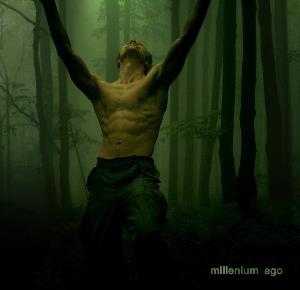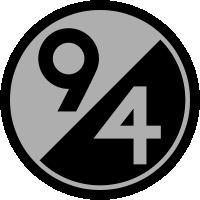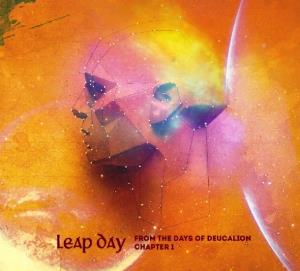
This list, it would appear, is going to take me all over the world before I’m halfway finished. We’ve already met a band from Greece, later we’ll be heading over to Spain and then Germany (or is it the other way around? I forget…) but right now we’re heading into the heart of progressive rock country, the current hotbed of all this is prog. Of course, I can only be talking about …
Ukraine?
 Aleatorica --- Karfagen
Aleatorica --- Karfagen
Yes indeed, the territory that’s currently all over the news as Mister Putin tries to turn back the political clock to the 1950s and does a decent impression of Stalin, grabbing the Crimea and “liberating” it, welcoming its citizens back into the arms of Mother Russia, whether they want to be there or not, while casting greedy eyes over the rest of the ex-Soviet dependency. But here at the Playlist we don’t concern ourselves too much with the machinations of dictators, I mean politicians and the movement of armies. It’s musical movements we’re interested in, and here there are plenty, whether they’re flying up and down fretboards or gliding over keyboards.
Ka
rfagen are essentially a two-man operation, and the band is the brainchild of one Antony Kalugin, who formed the band while still at school and then asked his friend Sergei Kovalev to join him. Remarkably, Antony has, in the period 2003-2005, worked on or composed over forty separate albums, some solo, some as projects, but his first work under the Ka
rfagen name was released in 2006. Since then the band has released five more albums, almost one a year, making “Aleatorica” their sixth overall.
Although a two-man band in essence, there are a lot more than two people contributing to this album, with oboe, bassoon, cello, sax, viola and electric violin players all adding to the mix, as well as flutes, clarinets and just about anything else you can think of. All in all, it looks like fifteen players in all, including the two founders. Impressive. Antony sings and plays guitar, keyboards and some percussion, while Sergei looks after accordions, bayan, does some more keyboards and even adds some vocals. The latter however are sparsely spread throughout the album, and for much of it it reads like an instrumental project, so much so that it’s something of a surprise --- was to me anyway --- when either of them start singing.
The title track --- subtitled “Shuffler’s riddle” --- opens the album with a decent five-minuter, almost Russian (sorry guys) style piano before the percussion kicks in and Sergei’s accordion adds its own flavour, then the guitars get going and flute and clarinet slip in too. The tempo is mid-paced with a certain amount of drama, not a bad opener, with a kind of descending melody on the accordion. I must admit, not my favourite instrument but when used well it can be really effective. The tempo picks up then on lilting clarinet and then gets more proggy with the keys, returning to the Russian themes and then going a bit Jethro Tull before the horns take the tune in a very jazzy direction with a lot of discordant stuff going on in the background. Kind of ruins it a little for me. The guitars take it again in the last minute but I would personally sound a note of caution here, that I think there’s too much going on, that the lads are trying to crowbar too many instruments and styles together, and I’m not sure it works that well.
“Mad gods of destiny” starts off with a sort of Irish reel, the accordion and flute trading licks, then it ramps up as the percussion cuts in along with the guitar. This is the first of the few vocal tracks and Antony’s accent is so thick initially that I thought he was singing in his native language, but he’s not, as quickly becomes apparent. It’s a good rocker, the tempo a good bit higher than the opener with some nice vocal harmonies too. Sort of reminds me of Ten or Arena in places. What this song does prove is that in addition to being a talented multi-instrumentalist, Antony is a really good singer with real power and passion. The song goes into a very Alan Parsonsesque instrumental around the sixth minute with some nice tenor sax from Artyom Vasilchenko and more great flute work from Sergey Klevensky.
There’s a short workout on the keys then for “Shadoof”, which lasts barely two minutes but is very cinema scorelike, really enjoyed this even though it was very short. It leads into another instrumental called “D’Ale”, which has a rather obvious and predictable celtic feel. I must admit, I get a little tired of artistes painting Ireland as being a place dedicated to drinking. I mean (hic) it’s not we’re (hic) all drunks now (his) is it? What? We are? Mere … meer, c'mere an’ say that ye bast …. Sorry, it just annoys me. Nevertheless there’s some good irish fun to be had in this song and it is good: I just wish they’d called it something else. My moan for the day. A short one up next for the oddly-titled and hopefully never-to-be-experienced “Gnome in a bathroom” (don’t they usually hang out in gardens with little fishing rods?) which is one of my favourites on the album, with a really nice mix of acoustic guitar and accordion, some deep bassoon adding a throaty quality to it. Again, it’s not long enough sadly.
“Solar cycles” is longer, almost six minutes, in which flute, clarinet and oboe dance around each other, brought together then by Sergei’s accordion before the tune evolves into something close to a medieval style with a bit of waltz thrown in. Some fine sax breaks with piano interspersed throughout the melody leads us into “Transaleatorica”, another short instrumental mostly carried by Klevensky’s flute work as we head into the longest track, nine and a half minutes of “Mystic castles”. It’s accordion that leads this for the first minute or so before flute joins in, keyboards and piano making their presence felt as the third minute turns to the fourth. It’s probably the most overtly progressive rock track on the album at this point, with a lot of nods to Yes, Camel and ELP. Some very jazzy piano then in the seventh minute. After sixteen seconds of flute which goes under the name of “Radio beam” this jazzy piano continues into “Whirlabout”, which is just basically great fun, almost a jam.
Some very Genesis keyboards in the third minute, with some almost electronica thrown in and it gets quite new-wave at times, then some truly awe-inspiring cello and violin work as the piece comes to a conclusion. Another short instrumental in “Sweetmeat”, this time a showcase for Sergei on the accordion and Vanya Rubanchyuk on the drumseat. Nice, again kind of middle ages feel to it, bit Tullish I guess though I don’t know much of their work as I don’t like it. The other standout comes for me in the form of the only other vocal track, the almost eight-minute “A day without rain”, which again has deep celtic undertones. I’m not sure why this is the case as the guys are as far removed from Ireland as they could be, but maybe they just like Irish music? Anyway, it has a deep, dark, dramatic keyboard line and a low vocal, almost spoken rather than sung for the first verse before Antony shows what he can do as the song begins to take shape.
Very much a Pink Floyd influence on this, with a great chorus involving some fine backing vocals. A great rising bassoon and keyboard harmony about halfway through, The vocal comes back in about the fifth minute, and again you’re struck by the resemblance to, or at least the style of, Roger Waters, particularly on “The Wall” and “The final cut”. Just to cement the Floyd comparison then, Antony rips off a very Gilmour solo to close the track. Whether this was meant to be a conscious tribute to Floyd or not I don’t know. It’s a great song but it is quite derivative, but not so much that you would accuse them of ripping Waters and Gilmour off. Still one of my favourites, and as I say the last vocal track on the album.
Which leaves us with two, the first a short piano piece called “Amazing Ananda” which runs for just over two minutes, some flute certainly helping out with some squishy synth too, but it’s the piano’s show as Sergei hits the keys harder and edges into some seventies Genesis areas, then the album comes to a close on “Aleatorica (Back to the alea)” which I guess bookends with the opener. Celtic flute, piano and busy synth carry the tune, which soon evolves into a sort of boogie blues number with Sergei’s accordion adding its voice, some nice guitar work too as the track heads into its final minutes. There’s something of a false ending then as marimbas kick in and then everything stops in the fourth minute for about maybe ten seconds before a wash of synth reintroduces the flute which backs it, then synth changes to piano and we fade out to leave the flute on its own, dying away in the last seconds of the song.
TRACKLISTING
1. Aleatorica (Shuffler’s riddle)
2. Mad gods of destiny
3. Shadoof
4. D’Ale
5. Gnome in a bathroom
6. Solar cycles
7. Tranaleatorica
8. Mystic castles
9. Radio beam
10. Whirlabout
11. Sweetmeat
12. A day without rain
13. Amazing Ananda
14. Aleatorica (Back to the alea)
I’m not sure whether I would class this as progressive rock really. There are elements, sure, but mostly they’re only in one or two tracks, and with the wealth of instrumentation on display here I’d consider this almost more folk or ethic music really. But it’s an album I really enjoyed and to say it’s mostly the work of just two guys, and more, that it comes from out of the dark depths of Eastern Europe just shows how much of a triumph it is. I’d certainly be disposed towards hearing more of Kar
fagen’s work, though again it would not be terribly high on my list of priorities. Nevertheless, as I remarked in my review of This Patch of Sky’s “Newly risen, how brightly you shine” in my “Bitesize” journal recently, for an instrumental album to keep my interest there has to be a lot of different and varied music going on. This is not entirely instrumental but as close as it gets, and it certainly fulfills that criterion. Although some tracks nod back to others nothing is as samey or as formulaic as the other album.
it is good to know that even in the farthest reaches of what used to be the USSR (and will again, if the Russian president has his way!) good music is still alive and kicking, and that talented musicians are working with perhaps not the greatest support structure and you would imagine some restrictions on what they can do and what they can broadcast. Kar
fagen may not be what I would strictly speaking think of as progressive rock, but it’s still damn fine music, and Ukraine can be rightfully proud that it has artistes of this calibre, who can compete with some of the best in the world.
Nice job, guys. I hesitate to award this album too low a score, but must take into account the sometime lack of prog rock in many of the tracks, as well as the probably unintentional slight to my home country (yes I’m that bitter and twisted!). At the same time I would be remiss if I did not acknowledge the difficulties faced by a band trying to make it in this genre in what would be seen as one of the perhaps lesser-developed countries of Eastern Europe, and the fact that not only are they only two guys writing this but they appear to have self-released the album.
Therefore I think a reasonable rating is
6/10. I’d like to rate it higher but due to the concerns above this is the best I can do, though it probably deserves better.
(Note: I looked, but there is nothing I can find on YouTube --- not that surprisingly --- so I'm afraid I can't showcase their music)















 and it then settles down into a nice sort of laidback guitar and synth line with some lovely relaxed percussion. Rather surprisingly, the vocal when it comes in is in English. It’s not that I haven’t heard “foreign” bands use English in their lyrics, but considering the title is in Spanish I thought … well anyway, singer Martin Puntonet has a very engaging voice, very calming and soothing and the backing vocals work very well too. The guitar work of Guillermo Caminer is special and Diego Actis on the keys gives a boppy, Supertramp-style feel to the music, then switches into full eighties Marillion mode.
and it then settles down into a nice sort of laidback guitar and synth line with some lovely relaxed percussion. Rather surprisingly, the vocal when it comes in is in English. It’s not that I haven’t heard “foreign” bands use English in their lyrics, but considering the title is in Spanish I thought … well anyway, singer Martin Puntonet has a very engaging voice, very calming and soothing and the backing vocals work very well too. The guitar work of Guillermo Caminer is special and Diego Actis on the keys gives a boppy, Supertramp-style feel to the music, then switches into full eighties Marillion mode. 





 Linear Mode
Linear Mode
